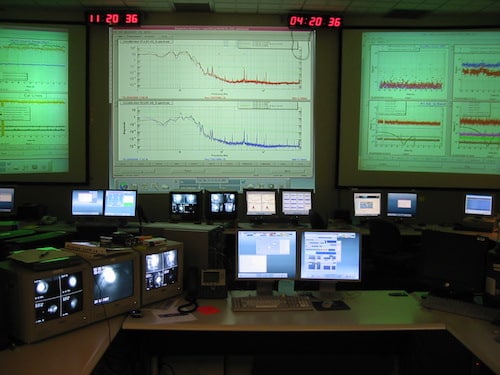 Faith & Science
Faith & Science
 Physics, Earth & Space
Physics, Earth & Space
What Should We Make of Gravity-Wave Detection?

What should we make of the detection of gravitational waves, reported last week to spectacular acclaim? I would judge this discovery to be the real thing, as opposed to the now discounted “detection” of cosmic-inflation-stretched gravity waves at the BICEP2 facility in Antarctica back in spring 2014. I wrote about that alleged discovery here at Evolution News (“A Matter of Considerable Gravity: On the Purported Detection of Gravitational Waves and Cosmic Inflation“).
The gravity waves detected at the Laser Interferometer Gravitational-Wave Observatory (LIGO) were produced by the collision of black holes about a billion years ago and say nothing about the truth or falsity of inflationary cosmology. What this discovery really provides is additional and exceedingly strong confirmation of Einstein’s already well-confirmed theory of general relativity by directly establishing the existence of gravity waves and giving further evidence of the existence of black holes.
The significance of discoveries confirming general relativity relate to one of the implications of the theory itself. As Roger Penrose and Stephen Hawking demonstrated in the late 1960s, regardless of which solution of Einstein’s equations is embraced, all backward-traced spacetime geodesics in classical general relativity terminate in a singularity, implying that space-time, matter, and energy all came into existence at some point in the finite past. This, of course, is the essence of Big Bang cosmology.
In other words, the universe began to exist, and there is no physical explanation in cosmology or physics for why this happened. This opens the door to various cosmological arguments, including, of course, the Kalam argument: everything that begins to exist has a cause and the universe began to exist, therefore the universe has a cause.
This cause is obviously not something physical, because it transcends the physical universe, and it is obviously not something abstract and mathematical, because even if one is a Platonist and thinks such entities have mind-independent existence, they are causally inert and impotent. The only causal option left is an immaterial transcendent personal agent of immense power and wisdom. So the effect of this new discovery is really just to strengthen theistic arguments that draw on general relativity itself.
Image: LIGO Hanford Control Room, by PhilipNeustrom [Public domain], via Wikimedia Commons.
